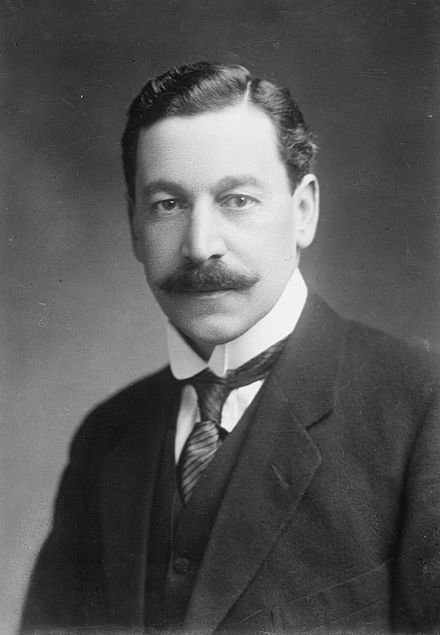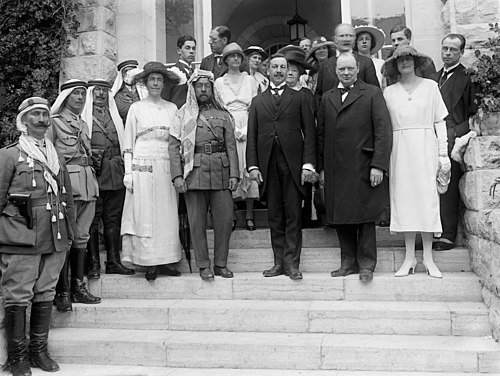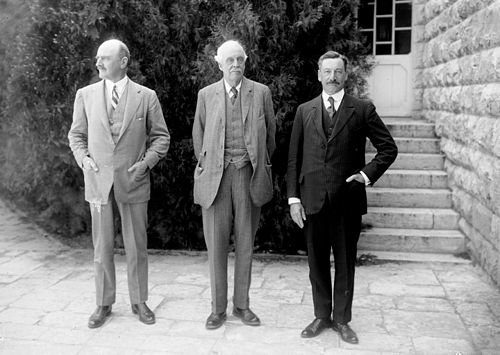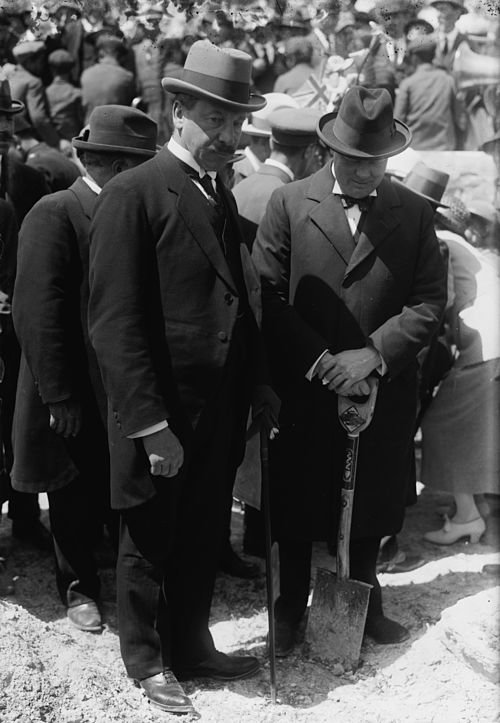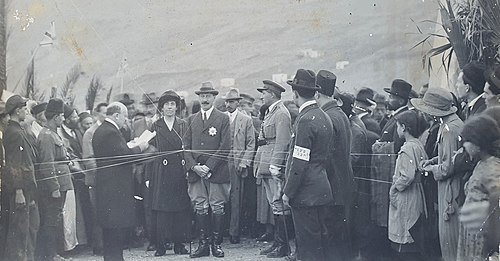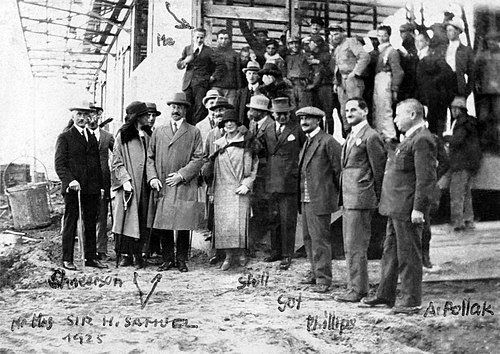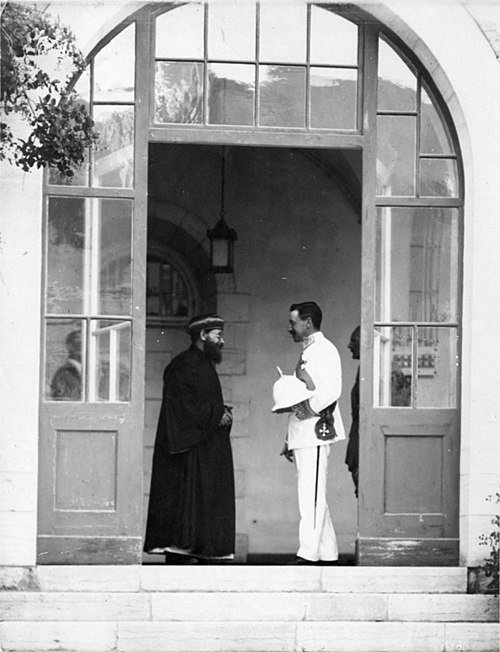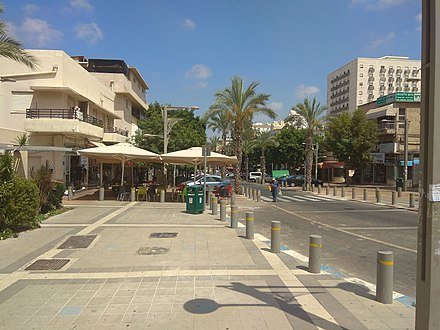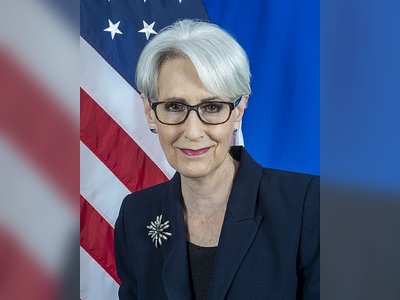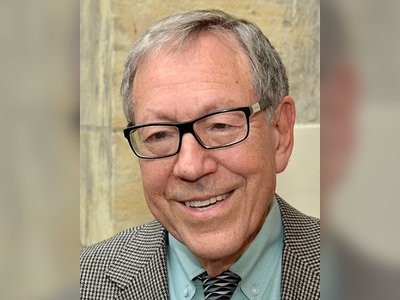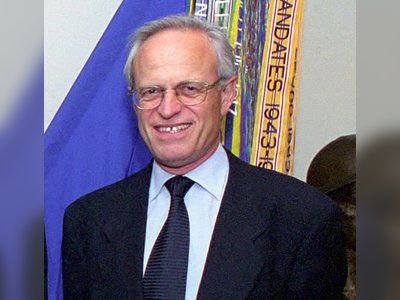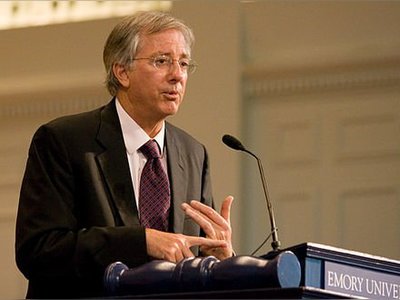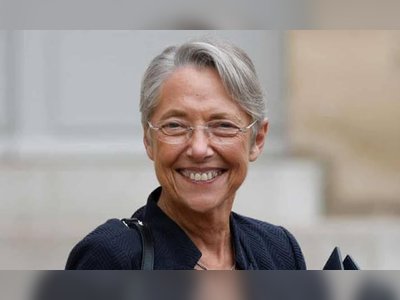Herbert Samuel: A Statesman in the Era of Change
Herbert Louis Samuel, 1st Viscount Samuel, whose Hebrew name was Eliezer ben Phineas Samuel, was a prominent British-Jewish statesman and diplomat. He belonged to the British Liberal Party and served as a Member of the British Parliament. Samuel also held key positions in the British government and was the first High Commissioner of Palestine during the British Mandate period. He was a member of the Order of the Garter, the Privy Council, and a recipient of the British Empire's honors.
Family Background
Herbert Samuel was born as the youngest among five children to Edwin Louis Samuel and Clara, nee Yates. He had three elder brothers: Stuart, Dennis, and Gilbert, as well as a sister named Mabel. Samuel married Beatrice, the daughter of a British-Jewish family with a high social and economic standing, primarily involved in banking and publishing.
The family had its roots in Poland and Bohemia, originally bearing the name Frankel, which changed to Franklin when the patriarch of the family moved to England in the mid-18th century. His brother-in-law was related to Norman Bentwich, and he was also the grandfather of the British scientist Rosalind Franklin.
Political Career
After unsuccessful attempts to secure a seat in the South Oxfordshire district as a Liberal Party candidate in the general elections of 1895 and 1900, Samuel was first elected to the British House of Commons in the 1902 by-elections in the Cleveland constituency. In 1909, he was appointed a minister by Prime Minister Herbert Henry Asquith. Initially, he served as Chancellor of the Duchy of Lancaster (a minister without portfolio) and later as Postmaster General and Home Secretary.
Samuel became the first Jewish member of the British government who was not converted to Christianity, with the notable exception of Benjamin Disraeli. As Home Secretary, he introduced the concept of daylight saving time in Britain, advocated for women's suffrage, and was involved in suppressing the riots in Ireland.
When the Liberal Party split into two factions, Asquith's group and Lloyd George's faction, Samuel supported Asquith. However, after David Lloyd George became the Prime Minister, Samuel declined to continue as a minister and left the government. This decision stemmed from his disapproval of Lloyd George's actions that led to Asquith's ousting.
Following the British occupation of Palestine in 1917, Samuel lost his parliamentary seat in the 1918 general elections in the Cleveland constituency. Despite his previous political prominence, he was not appointed to any diplomatic position. In early 1920, with the onset of the British Mandate in Palestine, Alfred Milner, the Minister of Colonies in Lloyd George's wartime government, appointed him as the first High Commissioner for Palestine. Samuel was warmly received in Palestine, where he was dubbed "the First High Commissioner for Judea" by the Jewish community.
However, Samuel aimed for neutrality and tried to maintain balanced relations between the Jewish settlers and the Arab population while gaining their trust. Among his notable actions was appointing Amin al-Husseini as the Grand Mufti of Jerusalem, using authority transferred to him by the Turkish Sultan. Samuel also imposed restrictions on Jewish immigration to Palestine, limiting it to 16,500 people per year in July 1920.
In February 1921, Winston Churchill replaced Alfred Milner as Colonial Secretary within Lloyd George's coalition government. Samuel continued as High Commissioner under the new Secretary. In May of the same year, a series of events known as the 1921 Jaffa Riots erupted in Palestine, resulting in the killing of several Jews in Jaffa and its vicinity, including the famous writer Yosef Haim Brenner. In an attempt to calm the situation, Samuel temporarily halted Jewish immigration to Palestine.
As a result of these events, a commission of inquiry known as the Haycraft Commission was established, which led to the issuance of the first White Paper of Churchill – an official statement of British government policy.
In this White Paper, the first of three, Churchill's government separated Transjordan from the Mandate territory, although full British withdrawal from this territory only occurred in 1946. Samuel also declared restrictions on immigration to Palestine "in accordance with the country's absorptive capacity."
Recognizing the need for stronger law enforcement in Palestine after the riots, Samuel established the "Notables' Police Force" (also known as the "Palestine Gendarmerie Force"), a police force aimed at preventing disturbances and maintaining peace. Its command was British, but the officers were recruited from the local population according to a quota system.
In 1922, Samuel established the "British Gendarmerie," a semi-military police force tasked with preventing disturbances and combating marauding gangs. The actions of these two forces contributed to relative calm in Palestine until the end of Samuel's term as High Commissioner. His successor, Sir Herbert Plumer, disbanded the Gendarmerie.
Among Samuel's significant actions was the declaration of Jerusalem as the capital of the Mandate territory known as "Land of Israel" and the establishment of the High Commissioner's residence in Jerusalem. During his tenure, the British government's seat was located at the summit of Mount Scopus (later replaced by the "Commissioner's Palace" after the 1927 earthquake).
Samuel also worked on developing the land, such as the construction of roads to alleviate unemployment among the Jewish immigrants of the Third Aliyah. His administration aimed to improve the well-being of both Jewish and Arab residents.
In the aftermath of Samuel's term and the subsequent appointment of Lord Plumer, Palestine experienced relative peace until the 1929 Arab riots. After completing his term in 1925, Samuel considered relocating to Haifa but abandoned the idea due to strong opposition from his successor, Lord Plumer. Leaders of the Jewish settlement, including Rabbi Abraham Isaac Kook, opposed his departure and urged him to remain as High Commissioner.
However, others saw Samuel as significantly responsible for the gradual erosion of the Balfour Declaration's commitments, as reflected in the 1920 White Paper. In an article titled "Three Years of Lord Samuel," Zabotinsky listed "his sins": "Pushing Zionist leaders or supporters away, blaming Jewish disturbances on Jews themselves, halting immigration, the White Paper, and the extortion scheme linked to it, putting obstacles in the way of Jewish economic activity, and humiliating Jews at every turn and in every place.
The transformation of the Land of Israel into a land where it is forbidden to sing 'Hatikvah' but permissible in town squares of Jewish towns to sing 'The Jews are Our Dogs'... We are forced to say that Samuel's intentions were good when they were objectively examined. This was the peak that any non-Mandatory ruler could achieve, whether Neva-Mediarist or Old Russian."
- הרברט סמואלhe.wikipedia.org
